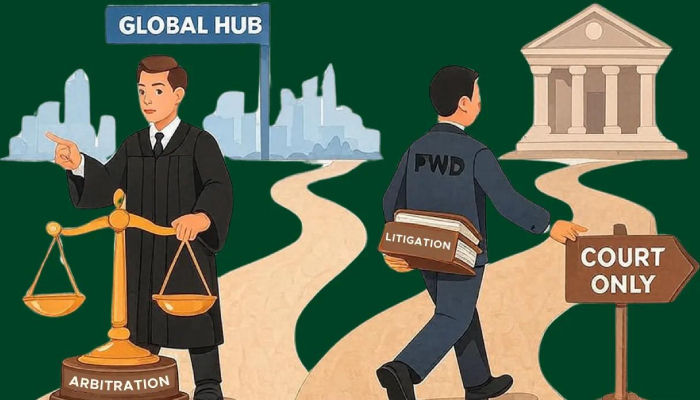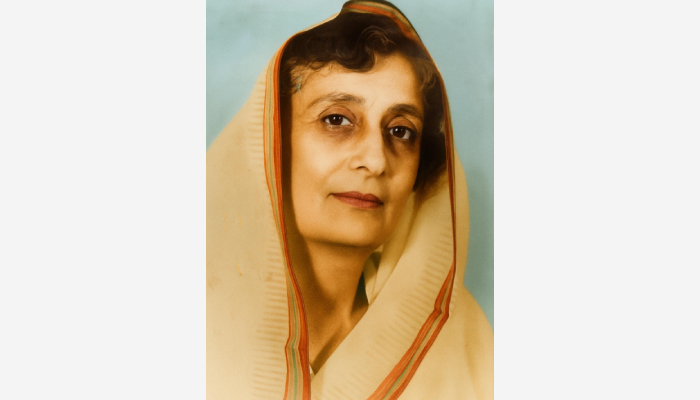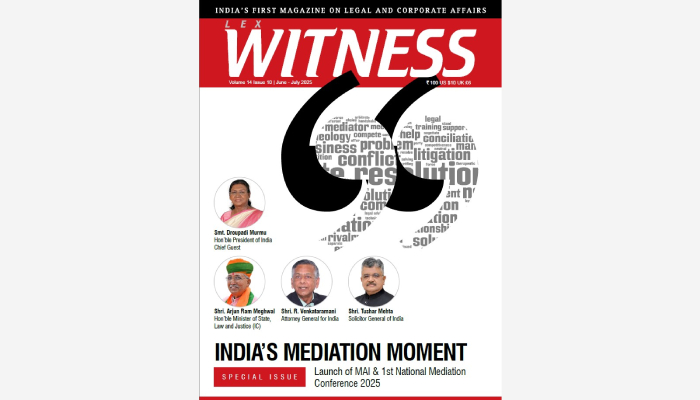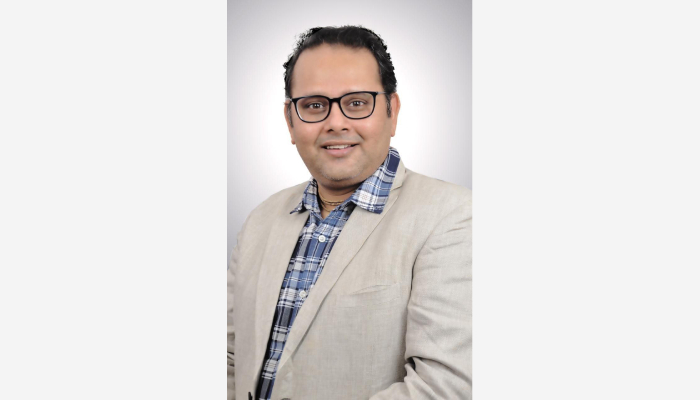
or

A After 2nd World War, one of the strategies of United Nations to increase the international Trade between member countries to ensure level playing field for underdeveloped countries was boosting the international Arbitration by bringing effective systems in place. The First effort that has turned out to be a magic in the field of International Dispute resolution was New York Convention on Recognition and Enforcement of International Arbitration awards. India was one of the founding signatories of New York Convention on Recognition and Enforcement of International Arbitration awards. It is important to note that the today’s most favorale seats of International Arbitration Singapore, USA etc., did not become parties to the Convention. But India signed the Convention.
The next step of United National was UNCITRAL Model law, and the objective was to make many member countries to have similar arbitration legislations, so that it becomes easy for the foreign parties and lawyers to understand the framework easily. As of now about 63 countries have similar Arbitration legislations including India following the Model law. In the year 1996, India was expected to become in near future, an Arbitration hub of the World because of the potential for arbitration cases, geographical location, adopting of UNCITRAL Model Law, courts aligning themselves with the international standards. Everyone believed that the new law would save the commercial world from generation long Court battles. Things started moving but not in the expected speed.
2015, Amendments brought in a new hope for the arbitration community because it plugged many loopholes and made Arbitration and Conciliation Act,1996 a much more effective law than earlier. The Prime Minister of India openly declared that India would make all its efforts to become an International Arbitration hub. Arbitration Council of India (ACI) and India International Arbitration Centre (IIAC) were introduced by parliamentary legislation. But the arbitration scenario started coming down because of two major challenges namely quality of awards and the overly burdened courts
The Power to appoint arbitrators is given to the High Courts and it was criticized that Arbitration has become a lottery for all retired judges and they are making the money they never dreamt of. The above said comment may be true, but they were the only lot who could properly conduct the arbitration proceedings, pass proper orders and conclude the proceedings. But the Judge Arbitrators barring a few took very less interest in understanding the underlying technology of the project and hence they decided the cases only on legal issues and ignoring the domain requirements.
Because of the criticism that Judges are only given opportunities, the courts started appointing lawyers as arbitrators. Unfortunately, most of the lawyers proved that selecting judges is the best among the available choices. Most of the lawyers who were appointed as Arbitrators kept it as a side business and had arbitration meetings in their free time and also delivered unsustainable awards.
The 3rd lot is domain expert category who are normally retired engineers and IAS officers. The well-connected retired officers got high value arbitrations, they struggle to understand the legal principles, and they also could not deliver sustainable awards.
Unfortunately, India miserably failed to develop a trained arbitrator’s community and develop the culture of appointing capable people as arbitrators. We prefer to appoint either known people as arbitrators or committed arbitrators, ignoring their capability. The Government also has not progressed in creating an ACI, which had to empanel and monitor the Arbitrators. No action is taken against arbitrators who mis-conducted themselves. Neither the Supreme Court not the High Courts have shown any interest in delegating their Section.11 powers to Arbitral Institutions and hence even after 9 years, no empanelment process is started. Hence Government, Parties, Government and Courts jointly are responsible for the lesser quality arbitration awards.
Since the Courts are not interested in delegating the powers of appointment of Arbitrators to Arbitral Institutions, every court in High Court has about 15-20 Section 11 applications every day. In addition to that various Section. 9 applications seeking interim relief is listed before the courts. In addition to that various other branches of commercial litigation cases are also listed. After that the Courts will have Section 34 applications. Most of the Judges by the time they reach Section.34 applications, will have very less time to deal with them and hence Section 34 applications hardly get disposed off. In between enforcement of International and domestic awards is another big portfolio.
Understanding an Arbitration and deal with the challenges under Section.34 is a time consuming and complex process. But Courts cannot have that kind of time in their hand and hence Section 34 cases are pending for about 10 years. No commercial organization can sustain themselves to enjoy the fruits of an arbitration for 15 years.
The next major issue is relating to the original jurisdiction of the Courts. In India only the Charted High Courts Chennai, Delhi, Mumbai and Kolkata have the original jurisdiction and hence arbitration seated in the above said cities have the luxury of going to High Courts for the Section 34 applications. In many other States, District Judges with very less exposure to commercial litigation hear the Arbitration applications along with the criminal matters. But some of the District Courts in Gurgaon & Delhi dispose of the matters much faster than the High Courts with original jurisdiction. But still awards given by retired High Court and Supreme Court Judges are getting challenged before the District Courts and Judges cannot effectively decide such cases.
Recently Government of India Finance Ministry has given some advice to all departments and Public Sector Undertakings to avoid arbitration clauses in their contracts. This attempt of the Government will again increase the burden of the courts and will result in a major break down in the judicial delivery system. Because of the above said challenges commercial organizations are moving even the domestic cases to Singapore and India is loosing because of the unwillingness of all of us.
S. Ravi Shankar is an expert arbitration lawyer having experience of handling International & Domestic commercial arbitrations seated in India and abroad. He has handled many high value construction & infrastructure arbitrations, investment arbitrations, supply contract related arbitrations under Indian law, SIAC Rules, ICC Rules, HKIAC Rules, LCIA Rules and DIAC Rules. He is a member of Advisory board of ICCA Publications Committee. He is the Chairman of a world class Institutional arbitration center IDAC India. He is the senior partner of Law Senate law firm.

Lex Witness Bureau

Lex Witness Bureau

Lex Witness Bureau

For over 10 years, since its inception in 2009 as a monthly, Lex Witness has become India’s most credible platform for the legal luminaries to opine, comment and share their views. more...
Connect Us:


The Grand Masters - A Corporate Counsel Legal Best Practices Summit Series
www.grandmasters.in | 8 Years & Counting
The Real Estate & Construction Legal Summit
www.rcls.in | 8 Years & Counting
The Information Technology Legal Summit
www.itlegalsummit.com | 8 Years & Counting
The Banking & Finance Legal Summit
www.bfls.in | 8 Years & Counting
The Media, Advertising and Entertainment Legal Summit
www.maels.in | 8 Years & Counting
The Pharma Legal & Compliance Summit
www.plcs.co.in | 8 Years & Counting
We at Lex Witness strategically assist firms in reaching out to the relevant audience sets through various knowledge sharing initiatives. Here are some more info decks for you to know us better.
Copyright © 2020 Lex Witness - India's 1st Magazine on Legal & Corporate Affairs Rights of Admission Reserved